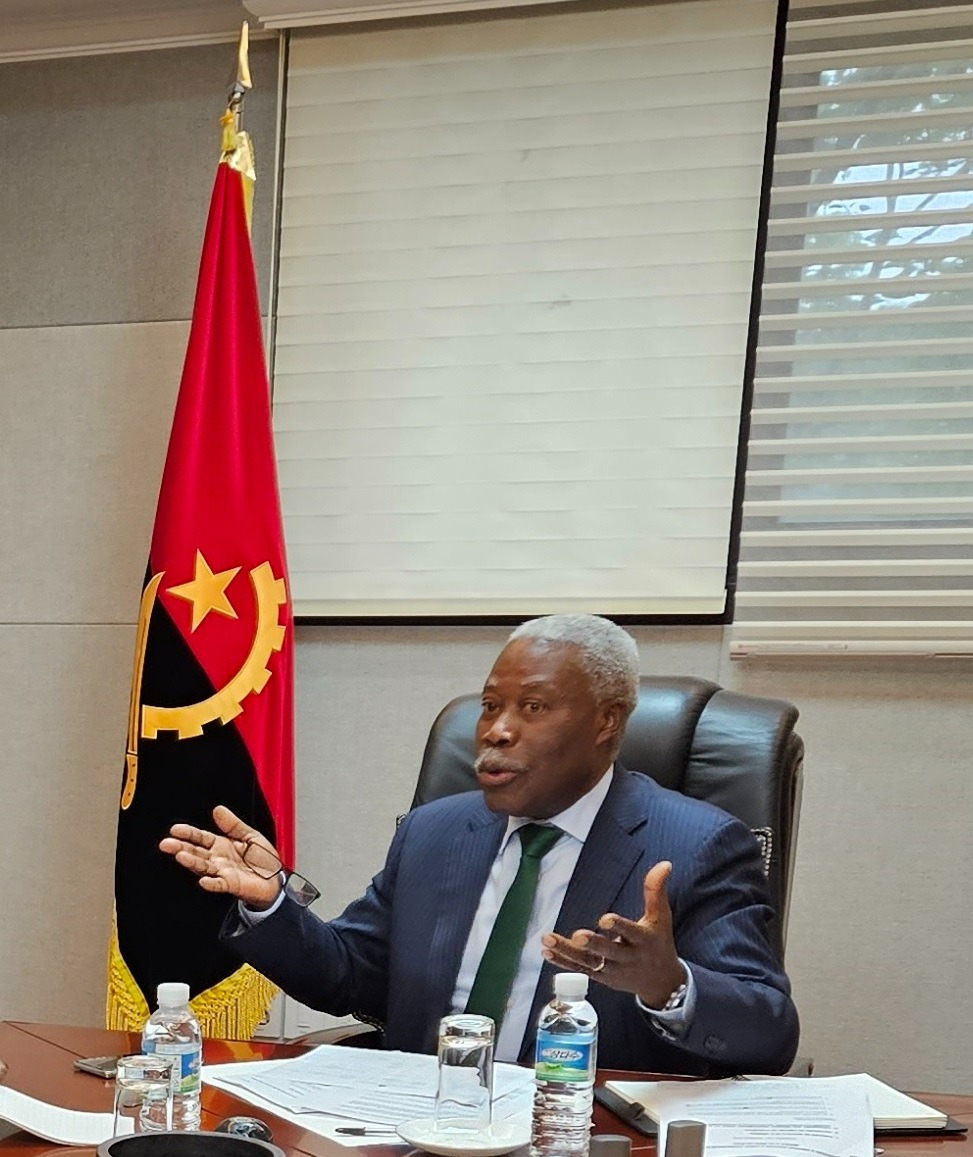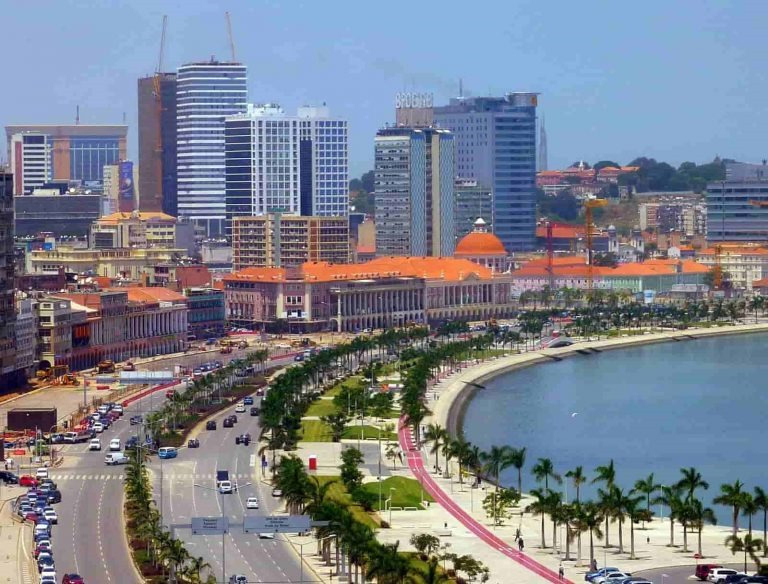[Bridge to Africa] Envoy urges Korea to join Lobito Corridor, other projects in Angola
Angolan envoy recommends S. Korea use its technology, economic progress to build factories across Africa
By Sanjay KumarPublished : March 6, 2024 - 14:23

Angola’s top envoy to South Korea, Edgar Gaspar Martins, urged South Korea to join infrastructure and investment projects in the African nation.
Pointing to the shift in US investment from oil to diverse sectors like solar energy and agriculture, particularly on projects in Angola, Martins cited the Lobito Corridor, worth $1 billion, aimed at bolstering the rail infrastructure connecting Angola to the Democratic Republic of Congo, Zambia and Tanzania.
The Lobito Corridor is a strategic route that provides an alternative pathway for Zambia and the Democratic Republic of Congo to access export markets.
The corridor is the shortest route between vital mining regions and the sea, offering significant opportunities for trade and development.
“I'm convinced that if Korea joins this project and others that are underway, it could benefit both in terms of trade relations with Angola and with neighboring countries (DRC and Zambia),” Martins told The Korea Herald.
According to Martins, the initiative is part of the Partnership for Global Infrastructure Investment, introduced by US President Joe Biden at the Group of Seven Summit in 2023, and would boost trade, development and jobs in southern Africa and beyond.
“It would make a huge contribution to strengthening cooperation between Korea and Africa,” he said.
“Through direct private or public-private partnership investments from Korea in the steel industry, Angola could become a driving force for sub-Saharan Africa."
Direct Korean private investment would increase trade in central Africa, Martins said, commending South Korea for transferring technology and manufacturing to boost regional trade, aligned with the African Continental Free Trade Agreement.
The AfCFTA is the largest free trade area in the world, encompassing 54 of the African Union's 55 countries, representing 1.3 billion people and a combined gross domestic product of $3.4 trillion.
Angola is collaborating with the Korea Cooperative Supporting Center for Overseas Port Development (KCSC) to enhance port operational capacities and establish a national training system for professionals promoting public-private partnerships, he said.
He noted that an increasing number of companies were engaging with the Angolan Embassy on their investment plans, facilitated by Angola's visa waiver for Korean citizens.
Martins believes that signing the Reciprocal Investment Promotion and Protection Agreement (FIPA), which the two countries are currently working on, would attract more Korean investment in Angola.
"We have no doubt that Korea will have easier access to a market of more than 500 million consumers,” said Martins.

Citing South Korea as one of the top five suppliers of new and used cars, Martins recommended South Korea use its position to set up vehicle assembly lines and spare parts factories across Africa.
“Almost the entire continent has a shortage of this type of investment,” Martins said, suggesting it as a way to tap into the African market without establishing full-scale factories.
He also outlined Angola-Korea cooperation, stemming from the General Agreement signed in 1993 that enables the movement of people, political consultations, oil, telecommunications, information technology, defense, environmental protection, and loans through the Economic Development Co-operation Fund (EDCF) between 1998 and 2020, with nine projects completed and two ongoing, amounting to more than $350 million.
“Angola can be one of the (growth) centers of the southern sub-region,” said Martins referring to Angola as a key facet in enhancing Korea-Africa cooperation to address peace, international security and economic development.
Meanwhile, he also highlighted Angola's successful business partnerships with Daewoo Shipbuilding & Marine Engineering, Daedong, Angola´s national energy company Sonangol, and Hyundai Samho Heavy Industries in shipbuilding and oil industry equipment as examples of new collaborations between Korea and African nations.
“Sonangol's investment in this sector in Asia currently ranks Korea as Angola's second-largest partner,” said Martins.
Martins also lauded the upcoming 2024 Korea-Africa Summit as a milestone event to bolster active diplomacy, friendship, and cooperation between Korea and African countries.
The success of the summit will lead to more active diplomacy between Korea and Africa and address economic development, global security, and environmental concerns, he said.
This is the second installment of a series of interviews, analyses and features shedding light on bilateral ties between South Korea and African countries both in the past and today, ahead of the Korea-Africa Summit in Seoul. -- Ed.




















